I admit, I have a love for dystopic fiction. They can showcase humanity’s most formidable qualities, such as tenacity, perseverance, and dedication. They delve into some of our darkest fears, most especially the fear of a loss of control. In many, the government, often under a ‘benevolent’ guise, has taken control of all aspects of society, stripping away freedoms until even the choice of job or spouse is gone.
Many of these societies are closed off, the citizens deterred from leaving, just like some gigantic cult. Don’t drink the kool-aid! Population is often regulated in a strict manner. The opposite of utopia, dystopias are places of abject misery, and oppression. Many function on a caste-like system. The average people are, more often not, dehumanised, and live lives fraught with fear.
Listed below are my top seven classic cinematic dystopias. I am defining ‘classic’ here as any made before 1990. This is an arbitrary choice ?
- Metropolis, 1927, Fritz Lang
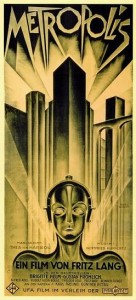
Metropolis is one of the first feature-length sci-fi films as we think of them today. Being the oldest on this list, it is a silent film, which makes it even creepier in my opinion.
Freder is the son of the city ruler, and a member of the aristocracy. After a chance encounter with a lower class worker named Maria, Freder becomes determined to find her. His search takes him to the lower reaches of the city, where he witnesses atrocity that truly opens his eyes.
- Soylent Green, 1973, Richard Fleischer
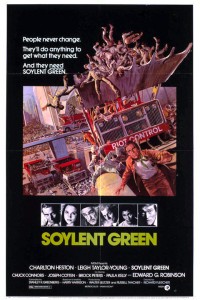
By the year 2022, overpopulation and lack of reapsources have led to a skin-crawling solution á la Jonathan Swift’s A Modest Proposal. This is a sci-fi detective story, wherein Det. Thorn, played by Charlton Heston, starts out with the murder of a high ranking person, and ends up discovering the Soylent Corporation’s answer to overpopulation.
Soylent Green is people! Pass it on!
- Logan’s Run, 1976, Michael Anderson
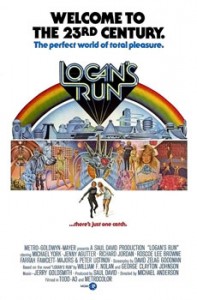
It is the year 2274, and the bulk of humanity lives in a sealed dome, run by computer, that is a sort of false utopia. People in this city have a gem embedded in their hand called a life-clock. When they reach the age of 30, the clock flashes red, and the unlucky citizen must partake in a ritual known as Carrousel. If they run, they are pursued by the Sandmen, and are executed once captured, being denied the slim possibility of ‘renewal’ that Carrousel offers.
Logan, a Sandman, is ordered to find the mysterious sanctuary that runners seek. His clock is triggered early, forcing him to become a runner himself. What Logan discovers on his quest isn’t quite what he bargained for, and sanctuary is a far cry from the promised peace.
- Blade Runner, 1982, Ridley Scott
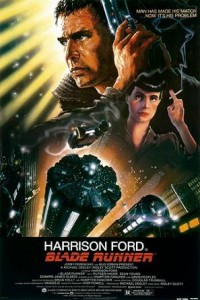
Based on author Philip K Dick’s Do Androids Dream of Electric Sheep, this film is set in a future LA. It is a world where replicants- created humans- are forced into slavery, doing dangerous or menial labour on off-world colonies. Those that try to return to Earth, where they have been banned, are hunted down and ‘retired’ by bounty hunters known as Blade Runners. Harrison Ford takes centre stage as Rick Deckard, a top notch Blade Runner who has reluctantly agreed to hunt a group of replicants recently come to Earth.
No less than seven slightly different versions of this movie have been released over the years. While initially not well-regarded, Blade Runner has since earned a place both as a cult classic, and as one of the best sci-fi movies ever made.
- A Clockwork Orange, 1971, Stanley Kubrick
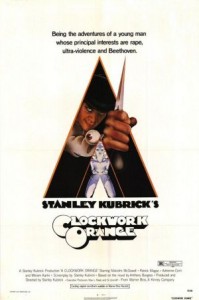 Based upon Anthony Burgess’ book of the same name, A Clockwork Orange ranks as the most bizarre movie on this list. We follow Alex, a juvenile delinquent, as he and his droogs terrorise the populace with the old ulra-violence. Alex is finally taken into custody, where he is given the Cure, a rather brutal Pavlovian training that creates an aversion to violence by pairing images of violence with crippling nausea and pain. Alex is considered rehabilitated, and is released from prison, only to find himself homeless and destitute. He is now seen as a prize political tool for those who think the Cure strips free will from its subjects.
Based upon Anthony Burgess’ book of the same name, A Clockwork Orange ranks as the most bizarre movie on this list. We follow Alex, a juvenile delinquent, as he and his droogs terrorise the populace with the old ulra-violence. Alex is finally taken into custody, where he is given the Cure, a rather brutal Pavlovian training that creates an aversion to violence by pairing images of violence with crippling nausea and pain. Alex is considered rehabilitated, and is released from prison, only to find himself homeless and destitute. He is now seen as a prize political tool for those who think the Cure strips free will from its subjects.
- Fahrenheit 451, 1966, François Truffaut
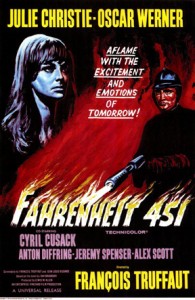
This film, and the Ray Bradbury book of the same name, give a whole new meaning to being a fireman. In a world where reading and free-thinking are banned, the firemen have the job not of putting out fires, but setting them. They are charged with burning any literature found, as reading is alleged to give rise to non-conformity, and to make people believe they are better than others. Our fireman protagonist, Montag, becomes curious about the books he burns, and begins reading them covertly. He is discovered and flees, taking final refuge with a hidden group of book collectors.
- Running Man, 1987, Paul Michael Glaser
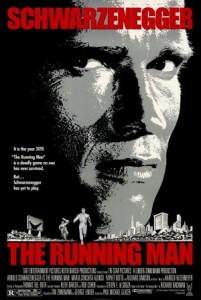
Long before Hunger Games, there was Richard Bachman’s Running Man. By 2017, America has become a police state, ruled with an iron fist. The populace is kept docile and entertained by reality TV shows such as The Running Man. Arnold Schwarzenegger stars as Ben Richards, a former officer wrongfully accused of murder. Richards ends up on the Running Man show, where prisoners are sent into a vast game zone and must survive being hunted by mercenary stalkers. Prize for survival? A full pardon of crimes. Pardons awarded- 0. Richards turns the tables, organising his fellow contestants, and they begin to take out their hunters, giving viewers a show they will never forget, and showing that some things are worth fighting for.
**Yep, I know, there are still so many classic cinematic dystopias out there that went unmentioned. I chose ones I am particularly attracted to.
*****Come share your favourite cinematic dystopia!

